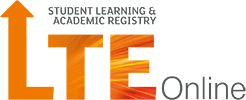I recently attended the first day on the 13th annual Durham University Blackboard USer Group Conference, which brings together many colleagues working in the field of TEL to share good practice. There were a number of sessions I was particularly keen to see on topics from the successful adoption of Online Distance Learning to looking at new ways to integrate a wider range of learning tools into an institutional learning platform such as blackboard. Here is a quick overview of the highlights:
Meeting the needs of online learners; the challenges to shaping a new approach to online learning – Dr Esther Jubb, Academic Manager, University of Derby Online Learning
Esther Jubb has previously worked at Blackboard and having seen the evolution of Technology Enhanced Learning from the academic and propreitory perspectives is well placed to talk about what works and what doesn’t. This presentation gave a very informative run through of the University of Derby’s decision to change their ODL provision from a cottage industry that had yielded hit-and-miss results to a dedicated unit providing support and expertise at every step of the way from instigation, development, delivery and support of ODL courses. Although requiring a up front investment in dedicated staff and resources to redesign 193 modules, the approach has proved very successful. Derby’s approach is more evidence that institutions that wish to expand into potentially profitable ODL market need to be prepared to make an upfront investment in appropriately trained staff who are not being asked to also juggle the conflicting demands of traditional face to face delivery.
Enhancing the learner experience for l£$€: LTI to the rescue! – Simon Booth (University of Stirling) Stephen Vickers (IMS)
This ceLTIc project set out to solve the problem of increasing demand from staff and students for access to their particular favourite learning technologies. Although it would be great for every institution to make everything available to staff, a host of problems are generally entailed relating to software licensing and support, and issues of integration with existing University systems.
The solution envisaged involved the creation of a ‘learning tools interoperability’ (LTI) specification to provide a standard way to seamlessly integrate any learning tool with any major VLE. Access would be via a simple link from the VLE to the LTI platform. Benefits included the sharing of hardware, licensing, tech support and training costs. More details of the project can be found here:
• ceLTIc II (JISC Funded):
– Stirling, Loughborough, ULCC, Stephen Vickers
– 8 institutions using WebPA service
– project site – http://www.celtic-project.org
• References:
– LTI Briefing Paper
– http://publications.cetis.ac.uk/wp-
content/uploads/2012/05/LTI-Briefing-Paper.pdf
– IMS – http://developers.imsglobal.org
More on the conference in a later post.
